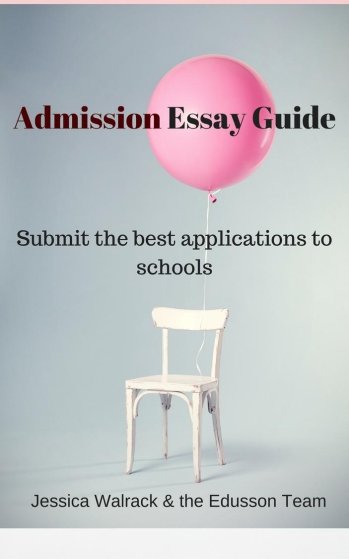
5. Lay your writing aside for some time and then do thorough proofreading. Consider revising those parts that are too general or do not have a clear meaning. Make sure every sentence is not just a general statement about how much you want to become a student of this particular institution, but also presents your personality, motivation, and abilities that relate to the selected discipline of your future major.
3. Plan your essay structure before you begin writing it. Start with general information about yourself, mentioning only the most relevant and preferably recent experiences that relate to your major. Then write two or three paragraphs about your motivation and rationale for studying at this particular institution. End by mentioning the extracurricular activities and hobbies you are interested in, and how these activities correlate to the institution you are applying for.
1. Carefully read through the website of the university or college to which you are applying. Be sure you fully understand the mission and the direction of development and values the university or college proclaims. Furthermore, each educational institution may also have some specific requirements to narrow down and simplify your essay.
An admission essay is an essay that a student writes when applying for a university or college program. It is normally not more than two pages long (around 300-500 words), so you have to be concise in your thoughts and choose your words carefully. There are various types of admission essays: statement of purpose, personal statement, letter of intent, etc. There is no single guide to success when it comes to admission essays. Every admission essay has to be unique and demonstrate your specialties, your attitude, and your personal traits that will help you successfully enroll in the institution of your choice.
Do and Don’t
4. Conclude your admission essay with a sentence addressing the committee or board of your college directly. In a formal manner, let the person reading your admission essay know how much enrolling in this institution means to you and that you will be looking forward to the decision of the board.
2. Make a short list of points you wish to emphasize in your admission essay. Include answers to questions such as: “Why do I want to study in this particular institution?”
Now that you have acquainted yourself with the basic admission essay writing tips and rules, you can check out our admission essay samples to link theory with practice.

5. Lay your writing aside for some time and then do thorough proofreading. Consider revising those parts that are too general or do not have a clear meaning. Make sure every sentence is not just a general statement about how much you want to become a student of this particular institution, but also presents your personality, motivation, and abilities that relate to the selected discipline of your future major.
3. Plan your essay structure before you begin writing it. Start with general information about yourself, mentioning only the most relevant and preferably recent experiences that relate to your major. Then write two or three paragraphs about your motivation and rationale for studying at this particular institution. End by mentioning the extracurricular activities and hobbies you are interested in, and how these activities correlate to the institution you are applying for.
1. Carefully read through the website of the university or college to which you are applying. Be sure you fully understand the mission and the direction of development and values the university or college proclaims. Furthermore, each educational institution may also have some specific requirements to narrow down and simplify your essay.
An admission essay is an essay that a student writes when applying for a university or college program. It is normally not more than two pages long (around 300-500 words), so you have to be concise in your thoughts and choose your words carefully. There are various types of admission essays: statement of purpose, personal statement, letter of intent, etc. There is no single guide to success when it comes to admission essays. Every admission essay has to be unique and demonstrate your specialties, your attitude, and your personal traits that will help you successfully enroll in the institution of your choice.
Do and Don’t
4. Conclude your admission essay with a sentence addressing the committee or board of your college directly. In a formal manner, let the person reading your admission essay know how much enrolling in this institution means to you and that you will be looking forward to the decision of the board.
2. Make a short list of points you wish to emphasize in your admission essay. Include answers to questions such as: “Why do I want to study in this particular institution?”
Now that you have acquainted yourself with the basic admission essay writing tips and rules, you can check out our admission essay samples to link theory with practice.

Different schools have different requirements for the admission essay. Before you begin, read through the specific requirements of the school and make sure you understand them. If there is a question to be answered, you want to make sure you fully answer it.
Brainstorming can also include a session of reading sample admissions essays. Do an online search to find websites that include archives of free admissions essays such as this site.
Think about the impression your topic will make. Will the admissions officer remember your topic the next day, and what do you want your lasting impression to be?
It’s important to take your time when deciding what to write about for your essay. Take at least one to two weeks to brainstorm for essay ideas. Following your brainstorming session, you’ll probably find a subject that you had not considered. Remember that brainstorming is a development of ideas, so don’t rule out any during this stage. Below are some questions you can ask yourself during this brainstorming session.
Read through the specific requirements of the school

Schools love the idea of diversity and every school wants to increase theirs. Because of this, many applicants are tempted to write about their qualities that can bring diversity to the school. However, this must be done carefully as you still need to impress the admissions office. Simply stating what makes you different will not set you apart. Showing the ability to demonstrate how you overcame any stigma, demonstrating interests, personal qualities and motivations is wise. Make sure to include how your diversity will contribute to the campus as a whole.
While choosing a topic, try to focus on your personal qualities. If you are telling a story about a particularly hard time in your life, you want to address your personal qualities instead of telling the story of the hardship. You’ll want to show how this hardship made you a better person in the long run.
Next, you’ll need to tackle the problem of the admissions essay which is to consider the topics that will let you synthesize your important personal experiences and characteristics into a coherent essay that will address your desire to attend a specific institution. Remember that while some essays allow a wide array of topic selection, some require you to answer specific questions.

Admission to graduate school is not easy. In fact, it is highly competitive, especially if you want to get into a prestigious university and graduate program. Ivy League universities often have very selective admissions criteria in which only a small percentage of hopeful candidates get a thumbs-up.
Once you feel satisfied with your list, narrow your list down by matching the items to the specifications of the program tha 1000 t you want. For instance, if you are applying for a program in political science, your winning a trophy at a singing competition would have far less value than being a member of your college’s debate society. Afterward, organize your outline. Do you want to present a chronological review of your accomplishments or would you rather present ideas grouped according to your interests, philosophies, and influences? During the drafting or writing stage, make sure that you highlight your best qualities. If you are resilient and determined, for instance, write about an experience at work or in college wherein you pulled through a major disappointment. Don’t makeup stories, though. When you write, think about how your degree would help you give back to the community and not just how it can help you fulfill your dreams.
The introduction is very important as it is what introduces the reader to your essay. If you don´t do it well, the reader is likely to loose interest and you are likely to miss out on the opportunity. Therefore, take your time and make the introduction as interesting and as logically challenging in a catchy way as possible. You want the reader to want to continue reading. You can start off your introduction by discussion the long lived passion that you have for taking a certain subject and what you hope to achieve at the end of it all. Talk about the motivation that the subject gives you. You have to be careful to maintain interest in your work and you can´t be carried away by your excitement.
Obviously, you cannot get into a graduate program without a bachelor’s degree. Admission requirements vary from one university or program to another, but generally, you need to have an impressive GPA, pass a battery of tests and interviews, great recommendations from your college professors and other mentors, and an excellent graduate admission essay.
The graduate admission essay and other admission requirements

The body should have no more than three or four paragraphs to support and make proof of the statements that you laid out in your introduction. Start out each paragraph with a topic statement. This statement gives a general idea about what you are talking about and prepares the reader subconsciously. Finish off each paragraph with an informative sentence that prepares the reader for the next paragraph. Include a resolution in each paragraph as that will earn you points. If you have goals you would like to achieve after undertaking the course, now would be a good time to talk about them.
Correct structuring of the essay will help the reader understand where you are coming from and what your thoughts are exactly. Unpleasant structuring most definitely means that you are going to be rejected. You don´t want that so take your time to understand how the layout should be. It will show organization above everything else and that just adds to your credits. There are several different structures when it comes to writing a graduation admission essay, but the general idea is just one. There is the introduction, the body and the conclusion.
Edit your work for grammatical slips, and tweak it around so the content creates a stronger impact. You want the board to see you as a well-versed, logical individual and not as a scatterbrain. Proofread for any typographical errors and misplaced punctuation. Get someone to edit your essay beforehand, as they will find mistakes that you miss, suggests top20writingservices.com. Your essay should make you feel proud of yourself before you send it in.
Grab someone who knows you well (e.g., a counselor, friend, family member). Share all your brainstorming content with them and ask them to mirror back to you what they’re seeing. It can be helpful if they use reflective language and ask lots of questions. An example of a reflective observation is: “I’m hearing that ‘building’ has been pretty important in your life … is that right?” You’re hunting together for a thematic thread—something that might connect different parts of your life and self.
And there are many [other stickers], including the horizontal, yellow stripes of the Human Rights CampaignThis is your main essay. Your application centerpiece. The part of your application you’re likely to spend the most time on. But, of course, I’d say that—I’m the College Essay Guy.
If you’re still uncertain, don’t worry. I’ll help you decide what to focus on. But, for the sake of this blog post, answer those first two questions with a gut-level response.
HOME
The Inciting Incident: The event that disrupts the Status Quo. Often it’s the worst thing that could happen to the main character. It gets us to wonder: Uh-oh … what will they do next? or How will they solve this problem?
Inciting Incident: While the author is brushing his teeth, his father is arrested for domestic abuse.
Step 4: For each value, write down a specific example, memory, image, or essence object that connects to that value. Example:
First, the author brainstormed the content of his essay using the Feelings and Needs Exercise.

